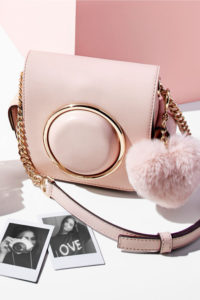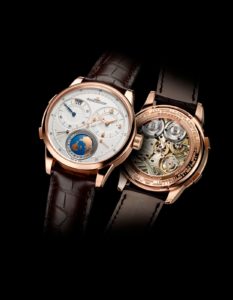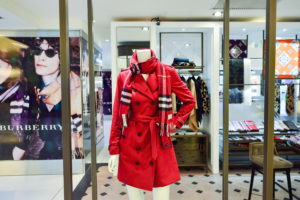Luxury brands destroy millions of dollars-worth stocks to deal with a thriving grey market and the fear of losing the exclusivity tag. They have also been accused of continuing to cruelly use fur in their collections. But now brands such as Burberry have announced that they are going sustainable and are seeking help in their attempts to do so.
Burberry is going fur-free, banning all sorts of fur, from rabbit, angora, fox and mink to even Asiatic raccoon. According to CEO Marco Gobbetti, only shearling and leather will be used in their collections in a bid to be more sustainable. Over the past 18 months, brands such as Gucci, Versace and Michael Kors have claimed that their labels are going fur-free. In 2016, Giorgio Armani stopped using fur.
Equally significant is Burberry’s decision to end the practice of burning unsold merchandise. In the past, Burberry, LVMH and Richemont have admitted to having burnt or dismantled their excess stocks. This abhorrent practice is fashion’s best-kept secret at a time when the world is increasingly obsessed with questions of sustainability to deal with environmental destruction and misuse of natural resources.
Michael Kors
Luxury brands destroy stocks that are in mint condition every year to keep the demand high and supply low and to ensure that nothing enters the discount market. Just this year, Burberry burnt £2.6 million worth of stock. According to Arnaud Cadart, a manager at US-based Flornoy and Associates says that the practice of burning unsold stock is very common, especially at a time when fashion cycles were getting shorter and there was excess of stock.
French luxury behemoth LVMH, in its 2018 annual report, also admitted to destroying inventories that do not sell by the end of the season. Swiss luxury group Richemont—whose portfolio includes watch brands such as Cartier, Montblanc, Piaget, Baume & Mercier and Vacheron Constantin—‘dismantled’ US $567 million worth of merchandise. Both Richemont and Burberry had blamed drop in demand from China for their products.
Richemont
Luxury brands are also worried about their products ending up in the thriving grey markets of Hong Kong, China and India. Since 2006, Richemont has been importing back excess stock of watches to stop them from being traded in the grey market, particularly in China where daigou or informal personal shoppers return home with high-end excess goods bought overseas and sell them for a profit. Sources claim that often, brands themselves sell their unsold stock in the grey market for short-term sales revenue.
Michael Kors
Taking tentative first steps towards sustainability
Brands realise that with an increasing focus on sustainability, being unsustainable by burning unsold stocks is simply bad PR. Several brands have begun seeking expert help on how to reduce production and stop wasting resources. A drop down in production is important to be able to deal with the environmental impact of wasting scarce resources.
Burberry
Richemont has begun taking apart their timepieces and redistributing the parts for reuse. Brands such as Chanel have also begun rationalising prices across all their stores world-over to limit excess stock and also beat the grey market. Stella McCartney, the rock star of sustainable fashion, along with Burberry and high-street sports brand Nike have tied up with UK-based Ellen MacArthur Foundation to “re-think, re-design, and build a positive future circular economy.” The foundation works with business, government and academia to build a framework for an economy that is regenerative by design.
The Ellen MacArthur Foundation is also creating new coalition of business and governments across the world to fight the menace of plastic waste. Several opportunities to rethink and redesign the way we make stuff, and use it, exist today. The idea is to design products that can be recycled or as Elle representatives state, “design products that can be made again”. The focus is on creativity and innovation to avoid unsustainable practices.
Sustainable practices, values and political resonance are obviously the biggest trend this season.







